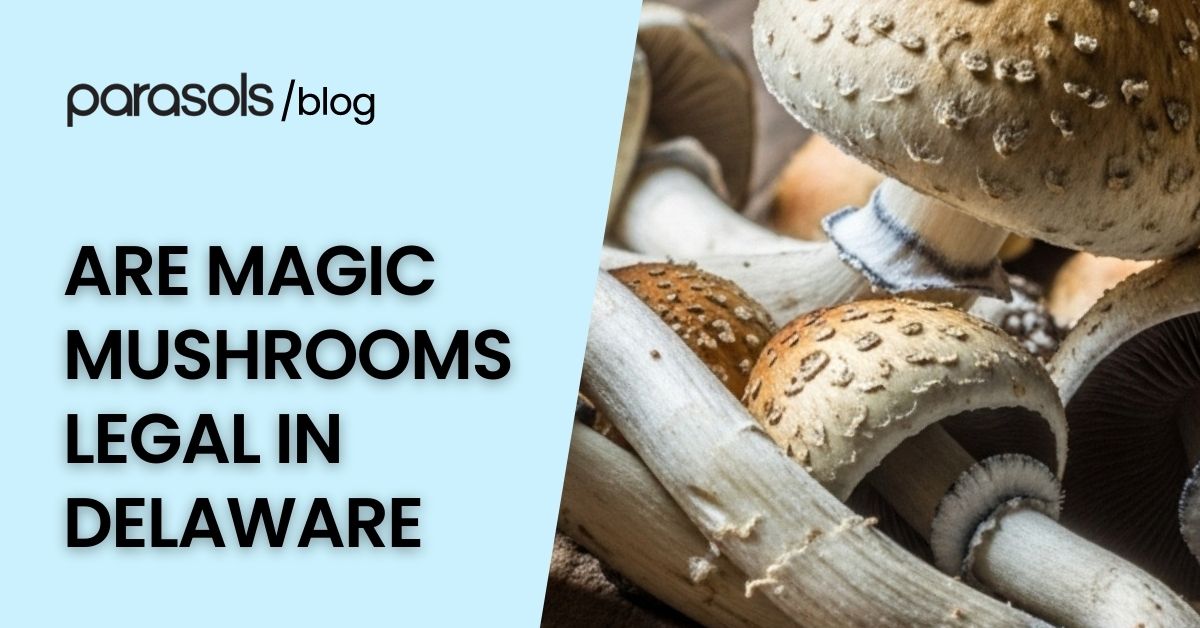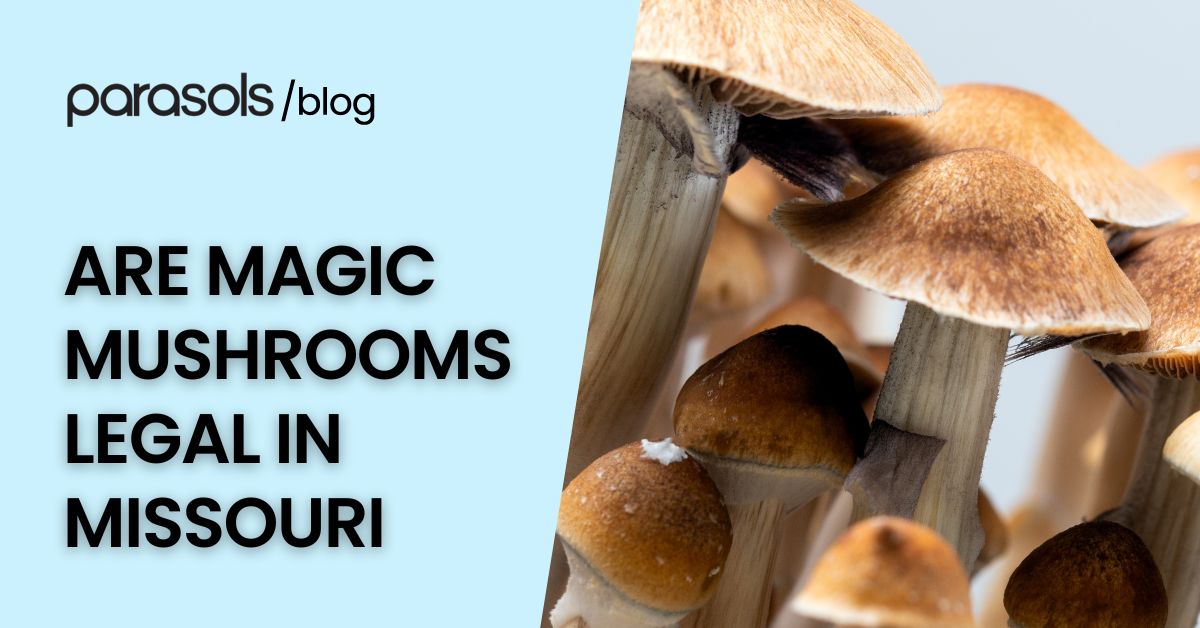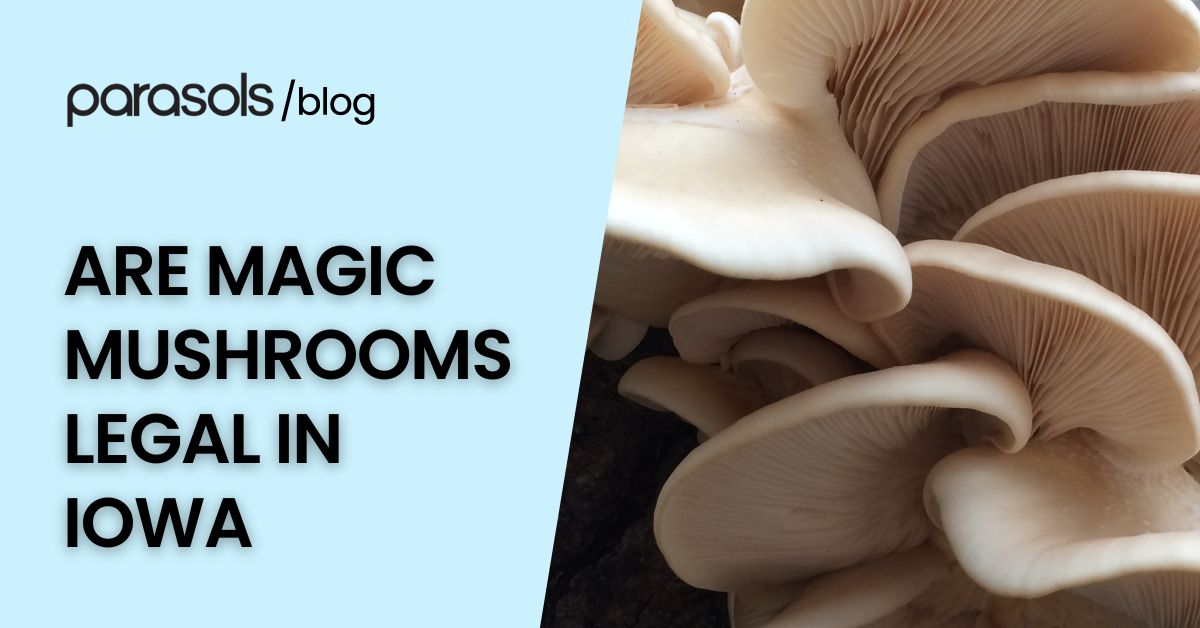It’s becoming more common to hear people talk about magic mushrooms—not just in counterculture circles, but in conversations about mental health. With studies showing promising results for conditions like depression and post-traumatic stress disorder, interest in the therapeutic potential of psilocybin mushrooms is on the rise.
But while public curiosity grows, the legal landscape hasn’t exactly kept pace. In Delaware, where both state and federal laws still apply, understanding the current legal status of psilocybin is important—whether you're learning alternative mental health treatment options or just trying to stay informed.
Key Takeaways
- Psilocybin remains a Schedule I controlled substance under Delaware and federal law.
- Possession, cultivation, and sale can result in misdemeanor or felony charges.
- Mushroom spores are legal to own but illegal to grow into psychoactive mushrooms.
- No current bills aim to decriminalize or legalize psilocybin in the state.
- Medical or therapeutic use of psilocybin is not permitted.
- Mindfulness and wellness practices offer safe, non-substance-based options.
Did Delaware Decriminalize Magic Mushrooms?

Not yet. In Delaware, magic mushrooms—specifically the compound psilocybin—are still considered illegal. Both state and federal law classify psilocybin as a Schedule I controlled substance, putting it in the same legal category as some of the most tightly restricted drugs. That means it’s still seen as having a high potential for abuse and no accepted medical use, at least officially.
Here’s where it gets a little confusing: psilocybin mushroom spores themselves are legal to own, as long as they’re not used to actually grow mushrooms. But once those spores are cultivated, the law treats it as a serious offense. You could face felony charges just for growing them.
So far, Delaware hasn’t taken any legislative steps to decriminalize psilocybin, whether for personal use, mental health treatment, or scientific research. While interest is growing nationwide in the therapeutic potential of psychedelic substances, Delaware hasn’t joined that movement—at least not yet.
Legal Pointers for Magic Mushrooms in Delaware
In Delaware, magic mushrooms—also known for their psychoactive compound psilocybin—are still tightly regulated under both state and federal law. While conversations around psychedelic legalization are growing in other parts of the country, Delaware has taken a much more cautious approach. Here are some key things to keep in mind:
Psilocybin Classification and Legal Status
Psilocybin is considered a Schedule I controlled substance under Delaware law, meaning it's viewed as having a high potential for abuse and no accepted medical use. This classification mirrors federal legal status and makes the possession, cultivation, or sale of psilocybin mushrooms illegal statewide.
Growing or distributing psychedelic mushrooms is prohibited and treated as a criminal act. Even small-scale cultivation can result in felony charges under state law, especially if law enforcement suspects intent to sell.
Psilocybin Mushroom Spores
Psilocybin mushroom spores are a legal gray area in Delaware. Since they don’t contain any hallucinogenic compounds on their own, it’s legal to possess them. But once those spores are used to grow mushrooms, it becomes a criminal offense, with cultivation considered a violation of psilocybin laws.
Medical and Therapeutic Use
At this time, Delaware does not allow psilocybin for medical use, even under supervision. There are no approved programs or clinics offering psilocybin-assisted therapy in the state. Despite the growing awareness of potential therapeutic benefits, the state has yet to carve out any exceptions for mental health treatment.
There’s increasing scientific interest in psilocybin for its potential to treat mental health conditions like depression, PTSD, and suicidal ideation. Advocacy groups continue to push for legal reform, hoping to make space for research and therapeutic use. But so far, Delaware’s policies remain unchanged.
Comparison with Other States
Some places—like Oregon and certain cities in Colorado—have taken steps to decriminalize or legalize psilocybin for therapeutic purposes. In contrast, Delaware hasn’t introduced any major house bill or senate bill to reduce penalties or recognize its medicinal potential.
Alternative Products for Magic Mushrooms in DE
Although psilocybin mushrooms remain illegal in Delaware, there are still legal options for individuals exploring mental health support, consciousness exploration, or alternative therapies. Here are some of the most accessible alternatives available under current state law:
- Psilocybin Mushroom Spores: Legal to possess in Delaware for research or microscopy purposes. However, growing them into mushrooms containing psilocybin crosses the line into illegal territory and can lead to felony charges under controlled substances laws.
- Ketamine-Assisted Therapy: Ketamine is legally used off-label in medical settings to treat conditions like depression and post-traumatic stress disorder. Clinics in Delaware offer ketamine-assisted therapy under medical supervision, providing a safe and legal form of psychedelic-assisted treatment.
- Amanita Muscaria Products: Often recognized by its red cap and white spots, Amanita muscaria contains psychoactive compounds like muscimol and ibotenic acid. These substances are not classified as controlled substances, so products like gummies made from this mushroom are legally available in Delaware. Still, the effects differ significantly from psilocybin and can be unpredictable, so caution is advised.
- Functional Mushroom Supplements: Mushrooms like lion’s mane, reishi, and chaga don’t produce psychedelic effects but are widely used for their health benefits. These legal supplements are believed to support brain function, immunity, and overall wellness.
- Mindfulness and Meditation Practices: For those looking to improve mental health or access altered states of awareness without any substances, mindfulness techniques like breathwork, yoga, and meditation offer safe, legal, and effective paths—readily available throughout Delaware.
Final Thoughts

In Delaware, psilocybin mushrooms are still classified as illegal under both state and federal law, and the consequences for possession, cultivation, or use can be serious. That said, there are legal and promising alternatives—from medically supervised therapies to wellness-focused practices—that offer support for mental health and personal growth.
If you're studying these options, it's a good idea to speak with a licensed healthcare provider or legal professional. A little guidance can go a long way in helping you make informed, safe, and responsible choices.
Frequently Asked Questions
Can I be prosecuted for buying magic mushrooms online and having them shipped to Delaware?
Yes. Ordering magic mushrooms online and having them delivered to Delaware is illegal, regardless of where they’re coming from. Even if psilocybin is decriminalized or legal in the seller’s location, receiving it in Delaware violates both state and federal law. Psilocybin remains a Schedule I controlled substance, and having it shipped can result in charges related to possession, trafficking, or even intent to distribute—especially if large quantities are involved.
Are there any proposed bills in Delaware to legalize or decriminalize psilocybin?
As of now, Delaware has not introduced any house bill or senate bill focused on legalizing or decriminalizing psilocybin. Unlike some other states taking part in the broader psychedelic renaissance, Delaware has remained on the sidelines. While advocacy groups continue to highlight the potential therapeutic benefits of psilocybin, there are currently no active legislative efforts to change its legal status.
Does Delaware allow religious or spiritual use of psilocybin?
No. Delaware does not offer legal protections for the use of psilocybin in religious or spiritual practices. Although some federal cases have carved out narrow exemptions for other psychedelic substances, those rulings do not automatically apply under Delaware state law. Using psilocybin for spiritual purposes can still result in criminal penalties under the state’s controlled substances act.
Is psilocybin tested for in standard drug screenings?
Typically, no. Psilocybin is not included in most standard drug panels, as it requires a specialized test to detect. However, if an employer, probation officer, or treatment provider has reason to suspect psilocybin use, they may request an expanded screening that includes hallucinogenic drugs like psilocybin.
What should I do if I’m facing charges related to psilocybin in Delaware?
If you're facing charges for psilocybin use, possession, or cultivation, it’s important to seek legal advice immediately. Because psilocybin is treated as an illegal substance under Delaware’s controlled substances laws, the maximum penalty could include jail time, fines, or both. A criminal defense attorney familiar with drug law in Delaware can help examine possible outcomes—such as contesting charges, entering diversion programs, or negotiating a reduced sentence.



Leave a comment
This site is protected by hCaptcha and the hCaptcha Privacy Policy and Terms of Service apply.